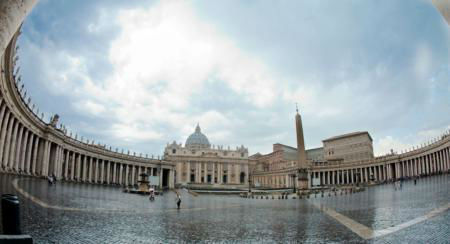'Not getting it' at the Vatican
"Not getting it" is an observation when someone fails to recognize something that is very obvious to others. Those who resisted women's suffrage just didn't get it when they insisted that women were not qualified to vote. Those who resisted racial integration because they believed "separate but equal" was better, just didn't get it. And those who thought that automobiles would never replace horses just could not see what was so plain to Henry Ford and a nation on the move.
As we Catholics emerge from the sexual abuse crisis, we are able to look back and see that the hierarchy of the Church just did not "get it" when incidences of sexual abuse of minors were first reported. Instead of recognizing these heinous acts as crimes, they scolded the perpetrators and moved them from place to place. They did not "get" how injured were the victims of these crimes or how life-long and life-changing these injuries would be. As a result of this poor response, perpetrators were not stopped but went on to terrorize the lives of hundreds of children. Those in charge just did not get it!
Thankfully, today there is clear recognition of the evil of this behavior and the creation of levels of safeguards to insure that the sexual abuse of minors by priests or other trusted adults is a thing of the past. While burdensome, these safeguards are a tiny price to pay to insure the safety and wellbeing of our children.
What a shock it was, therefore, to open the Sunday's New York Times recently and read in great detail how some members of the hierarchy still "do not get it" when it comes to the sexual abuse of minors by priests. The case in point is the story of the former Vatican Ambassador to the Dominican Republic, Archbishop Jozef Wesolowski. From 2008 to June of 2013, Archbishop Wesolowski preyed on the poor shoe shine boys of Santo Domingo, giving them large sums of money and in one case medicine for epilepsy in return for their acquiescence to his desires.
"I felt very bad," said one of his 14 year old victims, "I knew it wasn't the right thing to do, but I needed the money."
"This is the most terrible case I have ever seen" said the District Attorney, "He was abusing kids who were living in extreme poverty, in exchange for pills for a boy's illness. It's very perverse."
As bad as all this is, what is worse is how the Vatican responded. When evidence began to surface about the archbishop's behavior, he was recalled to the Vatican under diplomatic immunity. The case against him was so strong that he was stripped of his titles and defrocked, effectively thrown out of the priesthood. What the Vatican did not do was report his crimes to the local authorities. By recalling him to the Vatican under diplomatic immunity, he was effectively shielded from prosecution in Santo Domingo. According to the Dean of the Law School in Santo Domingo, "From the pure standpoint of justice, he should be tried in the country where the acts took place."
In apparent response to the article, the following day the Vatican announced that Mr. Wesolowski would no longer enjoy diplomatic immunity and could be tried in Santo Domingo. (Sounds like Pope Francis may have gotten involved.) While a step in the right direction, it is sad that the Vatican did not act in this way long before the New York Times article.
There is no doubt that this case gives the Church a very black eye. As we continue to recover from the sexual abuse scandal, transparency needs to continue to be our disinfectant. As painful as the details of this case are, it is only by exposing abuse and our response to abuse, to the light of day that we can hope to create a world devoid of the kinds of crimes that this case conjures up.
Msgr. Garrity is Pastor at St. Catherine of Siena Parish in Norwood.
- Msgr. Garrity is pastor of St.Brigid and Sacred Heart parishes in Lexinton.



















